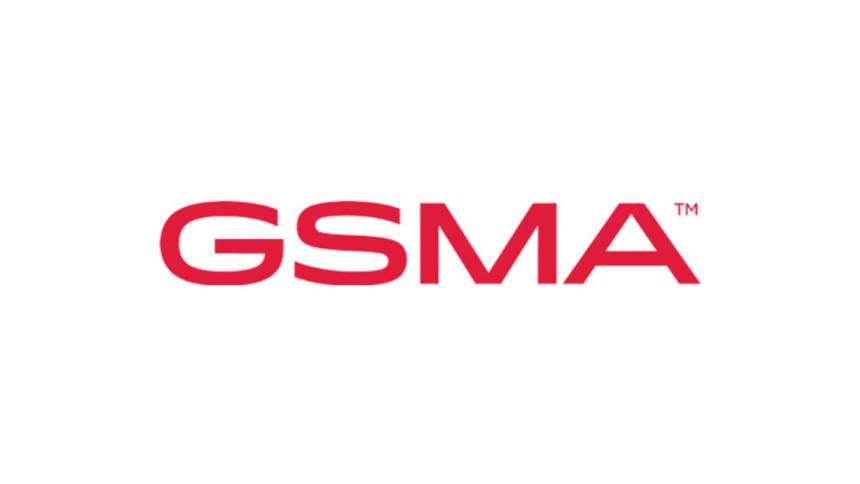GSMA flags risks in draft telecom licensing rules

The Global System for Mobile Communications Association (GSMA) has raised concerns about Bangladesh's draft telecom licensing guidelines, cautioning that several proposed conditions could deter investment, restrict market participation, and contradict the objectives of the Telecommunications Network and Licensing Policy (TNLP) 2025.In a recent letter to Md Emdad Ul Bari, chairman of the Bangladesh Telecommunication Regulatory Commission (BTRC), the association praised the regulator's reform agen...
The Global System for Mobile Communications Association (GSMA) has raised concerns about Bangladesh's draft telecom licensing guidelines, cautioning that several proposed conditions could deter investment, restrict market participation, and contradict the objectives of the Telecommunications Network and Licensing Policy (TNLP) 2025.
In a recent letter to Md Emdad Ul Bari, chairman of the Bangladesh Telecommunication Regulatory Commission (BTRC), the association praised the regulator's reform agenda but cautioned that some parts of the draft guidelines could undermine the new policy framework.
The letter was also sent to Faiz Ahmad Taiyeb, the chief adviser's special assistant for Post, Telecommunications, and ICT, who led the development of the new policy.
The GSMA's letter follows BTRC's invitation for public feedback on four draft regulatory and licensing guidelines for issuing licenses to Cellular Mobile Service Providers (CMSP), National Infrastructure & Connectivity Service Providers (NICSP), Fixed Telecommunication Service Providers (FTSP), and International Connectivity Service Providers (ICSP) under the new policy.
Earlier, in September, the government introduced TNLP 2025, replacing the decade-old International Long Distance Telecommunication Services (ILDTS) Policy-2010.
The GSMA, a non-profit trade body representing mobile network operators worldwide, described TNLP 2025 as "a major step in modernising the sector," adding that the reforms are "critical to enabling Bangladesh's digital transformation, promoting infrastructure efficiency, and attracting sustained long-term investment."
However, after reviewing the four draft guidelines, the GSMA identified issues that "merit reconsideration to ensure alignment with the policy intent and to maintain investor confidence and regulatory predictability."
ALIGNMENT ISSUES BETWEEN POLICY AND GUIDELINES
The GSMA noted that TNLP 2025 aims to improve affordability, boost competition across all license levels, simplify regulation, and attract foreign investment.
However, the draft guidelines introduce "new eligibility restrictions, approval requirements, [and] complex infrastructure rollout processes," which could create regulatory uncertainty and weaken investor confidence.
The letter stressed the need for consistency between TNLP 2025 and its implementing guidelines, cautioning against measures that may "hinder market openness" or make rules less clear for operators and investors.
FOREIGN INVESTMENT AND NICSP ELIGIBILITY RESTRICTIONS
A major concern highlighted by the GSMA involves eligibility rules for NICSPs, which cover tower and fibre infrastructure.
While TNLP 2025 allows foreign investment and participation by shareholders of mobile network operators (MNOs) and Access Network Service Providers (ANSPs), the draft guidelines impose new limits that make MNO investors ineligible and add technical and investment prequalification requirements.
These requirements include three years of prior experience, managing 5,000 towers or 50,000 km of fibre, and committing Tk 200 crore in investment within three years.
The GSMA warned that such restrictions "may inadvertently discourage much-needed infrastructure investment," particularly as Bangladesh seeks to attract global capital and expertise.
The association also recalled that the previous cap on foreign ownership at 85 percent had already limited investment, noting that "adding further constraints could further compound this concern."
OBJECTION TO MANDATORY DIVESTMENT OF TOWER AND FIBRE ASSETS
The GSMA expressed strong concern over a draft proposal requiring ANSPs to divest existing tower and fibre infrastructure by June 30, 2027. The association said this requirement conflicts with TNLP 2025, which does not mandate divestment.
"Forced sale of assets would create practical and financial challenges, since infrastructure investments are often tied to long-term loans and vendor contracts," the letter said. "Such mandatory divestment could be akin to expropriation of assets and might harm the country's reputation with foreign investors."
The GSMA recommended a voluntary, phased approach, allowing operators to make commercial decisions based on market readiness.
USE OF IMT SPECTRUM BY FTSPs
The association also raised concerns about a clause in the FTSP guidelines that could allow fixed service providers to use IMT spectrum.
IMT spectrum refers to radio frequency bands identified by the International Telecommunication Union (ITU) for International Mobile Telecommunications (IMT) systems. These bands support mobile broadband technologies such as 4G and 5G, enabling faster data speeds, wider coverage, and efficient global connectivity.
The GSMA argued that using IMT bands for customer connections falls under the "core service" of CMSPs. Allowing FTSPs to use them could create regulatory overlap, distort competition, and discourage future spectrum investments, which are usually allocated through auctions.
It recommended that IMT spectrum "be reserved exclusively for CMSPs", while FTSPs should use unlicensed bands when needed.
SUPPORT FOR REFORM EFFORTS
Despite these concerns, the GSMA expressed support for BTRC's reform efforts and said it is committed to providing technical input and sharing global best practices.
"The GSMA and its members strongly support BTRC's reform objectives and share the vision of creating a modern, competitive, and investment-friendly telecom sector in Bangladesh," the letter added.
The BTRC could not be reached immediately for comment.